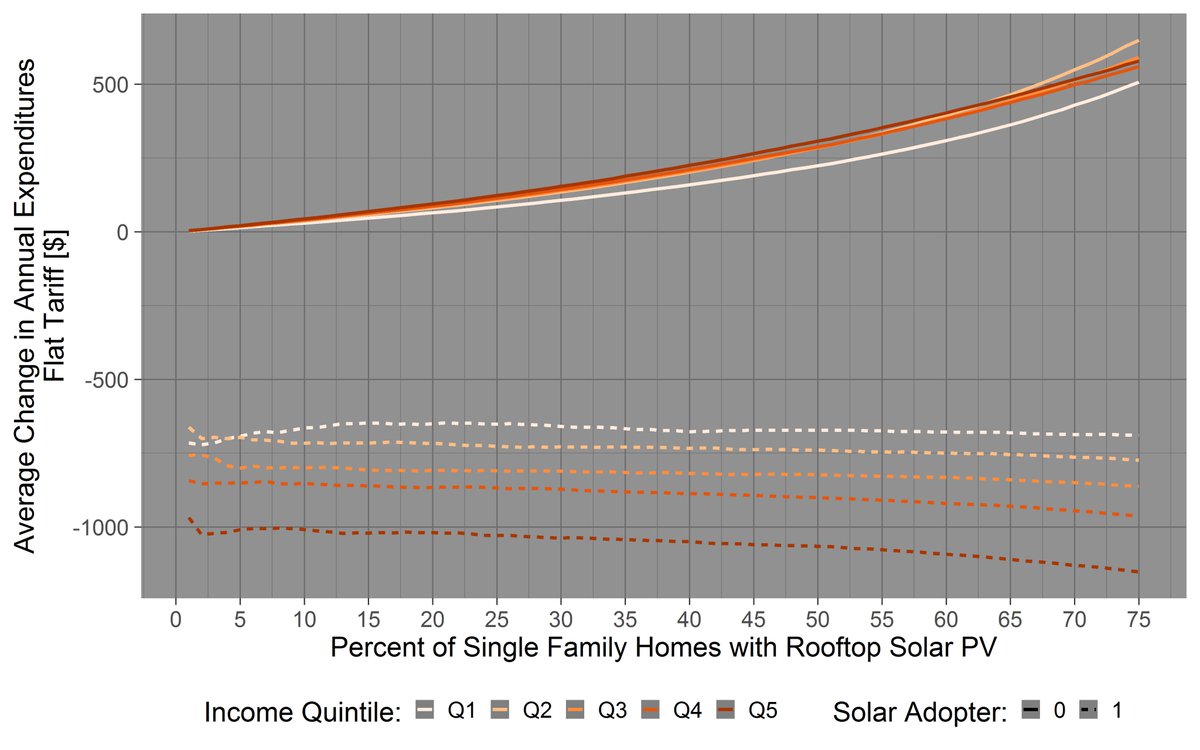This past week @mitenergy published a podcast in which we discuss the economics of rooftop solar, and, in particular, issues related to equity, net metering, & rooftop PV.
See the podcast below, & check out this thread for more!
In my PhD dissertation, I dove into one energy justice issue: How does rooftop solar adoption and rate design impact vulnerable communities?
Of course!
I'll dive in...
We need to price carbon. We also need to stop recovering the costs of infrastructure (wires) & policies (renewables & efficiency support) through variable ($/ unit of energy) charges.
I'd love feedback on this, as I'm currently working on the journal version (the work on the impacts of rate designs has been accepted to The Energy Journal).













